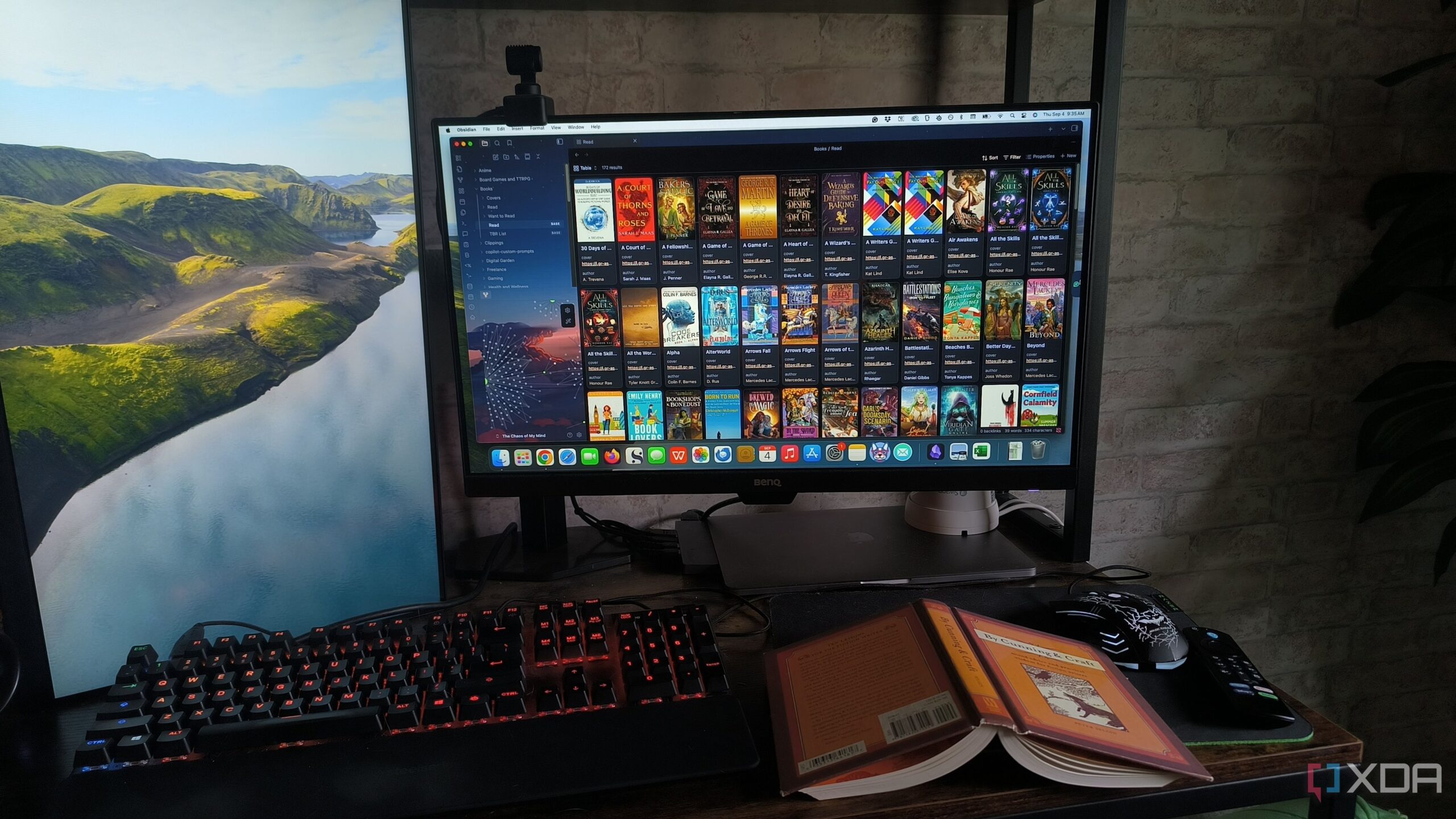UPDATE: A growing number of readers are abandoning Goodreads in favor of Obsidian for tracking their reading histories. This shift, driven by the desire for privacy and control, has led to increased interest in Obsidian’s new Bases feature, which allows users to consolidate their book notes and records in one secure location.
As dissatisfaction with Goodreads mounts, especially among users seeking alternatives like Fable and StoryGraph, Obsidian’s capabilities are becoming increasingly attractive. With the integration of the Booksidian plugin, users can effortlessly import their Goodreads history, including their reading lists and notes, directly into their Obsidian vaults.
Just announced: The Booksidian plugin requires no complex logins—only the RSS feed from a user’s Goodreads account. This allows seamless access to all public shelves, enabling users to build a comprehensive digital library. For those who prefer manual control, syncing can be performed selectively, though users must manage the limitation of syncing only the first 100 entries from each shelf.
The process not only streamlines the organization of reading history but also enhances privacy. Unlike Goodreads, which depends on external servers, Obsidian stores all data in markdown files locally, reducing the risk of losing access to valuable reading logs.
Moreover, users can customize their digital library significantly. Obsidian’s Bases feature allows for personalized displays, including card and table views, to visually represent their reading journey. With the ability to adjust card sizes and image aspect ratios, readers can create a unique and aesthetically pleasing interface for their literary reflections.
While the transition to Obsidian means losing the social interaction that Goodreads provides, many users find the trade-off worthwhile. The ability to privately document thoughts and reviews is appealing, especially as the digital landscape continues to evolve. Users can now explore additional plugins like Calibre and Kobo Highlights Importer, which facilitate the integration of reading data from various platforms into their Obsidian accounts.
With these developments, readers are rethinking how they track their reading experiences. The flexibility and privacy offered by Obsidian align with a growing desire for personalized digital spaces, especially amid increasing concerns over data security on mainstream platforms.
For avid readers looking to maintain their literary history and preferences, Obsidian offers a compelling alternative that prioritizes user control and customization. As this trend grows, the implications for how readers engage with their books and share their insights are profound.
What’s next? Keep an eye on further developments from Obsidian as updates to the Bases feature and new plugins are expected to enhance user experience even further. As the digital reading landscape shifts, staying informed will be critical for those navigating their literary journeys.
This transition marks a significant moment in the evolution of reading log platforms, and the implications for privacy and personal control over one’s reading history are just beginning to unfold.





































































